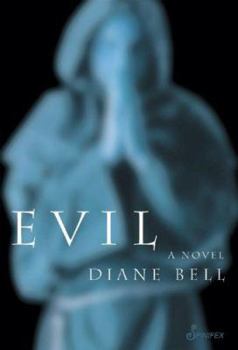Evil
Newly appointed professor Dee P. Scrutari turns her anthropological gaze on the tribe of males who dominate St. Jude's, a prestigious Jesuit liberal arts college in the northeast United States. When she can't get a straight answer to her question of what happened to the previous occupant of her freshly painted office, she teams up with a band of colleagues marginalized by the college--a liberation theology nun, a gay priest, and a Jew--to find out...
Format:Paperback
Language:English
ISBN:1876756551
ISBN13:9781876756550
Release Date:October 2005
Publisher:Spinifex Press
Length:200 Pages
Weight:0.80 lbs.
Dimensions:0.9" x 6.9" x 9.0"
Customer Reviews
3 ratings
The Evil Women Undo
Published by Thriftbooks.com User , 18 years ago
Diane Bell's taut novel, "Evil" paints a stark portrait of the realities of the academic world and the insides of Catholic institutions. With rich characters, it illuminates the role of the individual in perpetuating evil and, more importantly, the ability of individuals to create change.
It takes an academic to know an academic
Published by Thriftbooks.com User , 18 years ago
Diane Bell is a well-known linguistic anthropologist who has served in many universities and is an astute observer of the intricacies of how they work. She tells a tale that rings true; has a keen sense of what real goes on in the academy; and weaves a tale that unfortunately is often too true. With well-written prose, wonderful language, Bell shows us the hearts and minds of how academics--especially anthropologists--work. Short and tight you can tell that Bell has seen this story first-hand, or she leads you to believe that it is first hand. A tale of the dark side of human behavior, Bell highlights where hope exists in the human heart.
The dark underbelly of the academy
Published by Thriftbooks.com User , 18 years ago
Diane Bell's novel, Evil, raises questions of organisational politics, power and ethics that go to the core of academic and personal behaviour as her central character, anthropologist Professor Dee Scrutari, deals with the male faculty's sexist ethos. Sexism is not the sole province of the male staff and student excesses towards female students was tolerated as boys 'just being boys'. St Judes, a Catholic liberal arts college run by Jesuits, is a paradigm of the male construction of the university. Bell authentically portrays a cloying secrecy within the college hierarchy and many of the priests running St Jude's are manipulative and mysogenistic. How far that extends is at the heart of the novel, which faces squarely up to the contemporary issues of the abuse of power in religious institutions. However, Bell avoids heavy handed sermonising as she draws out in her novel the essential evils of sexism. While Dee records her observations of academic tribalism and the power structure, the sense of mystery and intrigue is established from the moment she moves into her new office. The story never flags as the women on the staff receive threatening messages and she tries to unravel the fate of the previous occupant of her office. Matters worsen and a sense of palpable evil is sustained. The resolution of evil and violence rests in the collective action of the women faculty and students in a dramatic climax. Diane Bell's Evil could be recommended reading for social science students, providing an example of how a social researcher works, observing, recording, analysing, even when dealing with her own work and relationships. She infuses the novel with her own ethnographic skills and Dee Scrutari's notes and reflections are ethnography in action while the novel goes beyond biographical fiction.





